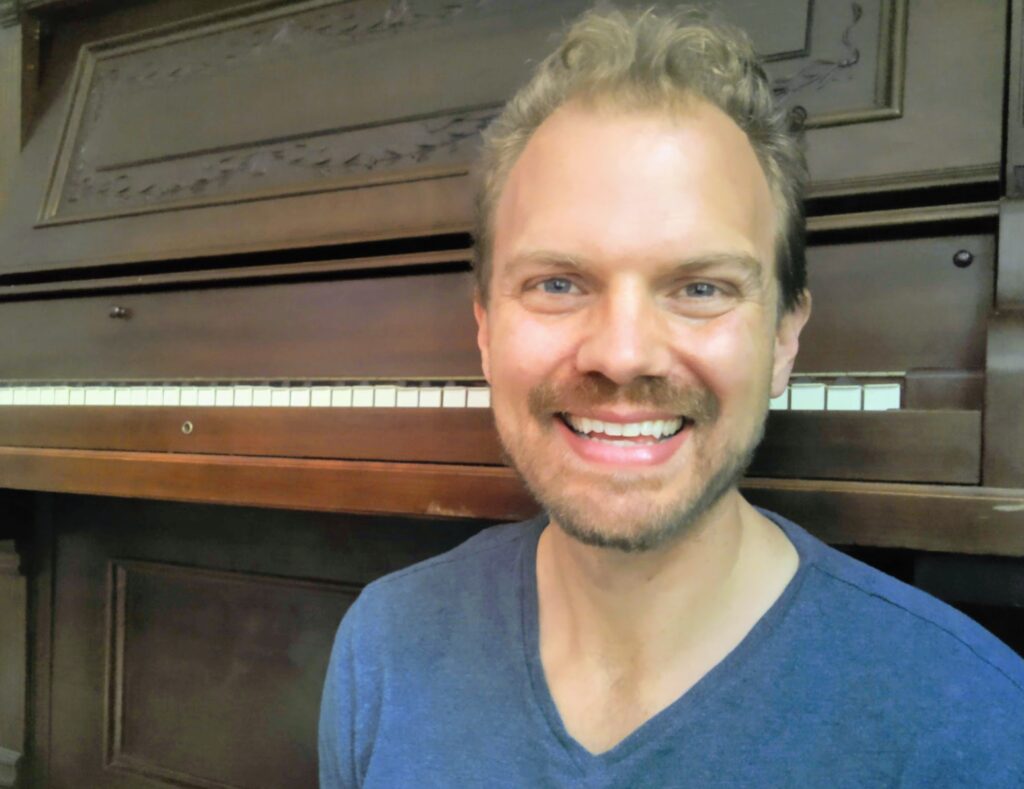I listened to a student a few weeks ago who sincerely asked me if it was possible to have a successful career in the theatre while maintaining other interests, family connections, and maybe even a healthy relationship with a significant other.
I told him that not only was it possible, but in my opinion it was necessary.
This student had some real anxiety because there were times when he wanted to spend time with friends who were business majors (how a music theatre major at Elon University even met a business major, I don’t know, but good job!), go see his family on weekends, and listen to music that wasn’t musical theatre.
I said, “All that sounds like you’re aiming to achieve some balance in your life.”
The student replied, “I look at some of my classmates, and it’s like they can eat, breathe, sleep this stuff. Some days I don’t want to do it at all.”
I told him about a friend of mine who was on a long-running tour who would call in periodically “sick of the show.”
Just because you love what you do doesn’t mean every day is charged with passion and excitement. Ask any writer who decides to put her butt in the seat when she’s feeling major resistance.
This conversation highlighted to me the myths or assumptions we create while watching what we think is going on with those around us.
In this case, it’s the very American message that success in our career validates us as human beings (I’ve believed it….still working on it), so we put all the eggs into that basket.
In college and through most of my twenties, my ego whirred like a shop vac and believed that when I was in a Broadway show, then I’d be a real boy. I could point to that and say I made it. (Please note I was pointing that out to imaginary others….who are these people our ego is trying to prove things to, anyway?)
I had a singular passion to succeed as a stage actor, and this affected every decision I made. I recall saying no to a few out-of-town trips in case I missed an audition opportunity.
There is a place for this singular focus. It helps us accrue all those hours Malcolm Gladwell tells us about. But I think it comes at a price.
Last fall I flew up to New York to attend an open call. I had not been to one in years, and it was nuts to see that all the people waiting in line were different but the same.
Lots of very resonant conversations about, “Oh, when I worked there….,” “What are you doing next???” (pretty dumb question, we’re both at an open call), “Oh, I heard they aren’t looking for….are looking for…afhuiebuiwaohfguawilfiwophgop)(*&^%^&*(*&!!! INTERNAL BRAIN EXPLOSION!
The sucking energy of that actor desperation…this is EVERYTHING–it made me feel sad because it was such a futile pursuit, and I also reflected on my years believing the same thing no matter how quiet or cool I tried to stay about it.
(I also ran into two former students in line for the same audition, so the real value of that experience was getting to give them a hug and tell them they’re doing great and it’s normal to feel mildly depressed and acutely anxious in your first few months (years?) in New York.)
Here’s the thing: if you walk into the audition room with a full life around you, you bring a generosity of spirit with you.
If you’re taking care of your spirit, your family connections, your friendships, getting your bills paid in some way that doesn’t completely vacuum your soul out, and perhaps you have a couple of creative projects you’re mulling or collaborating on, then you have something to go back to when you leave the room.
So, the full-life thing ends up being a really good tool for your career after all.
